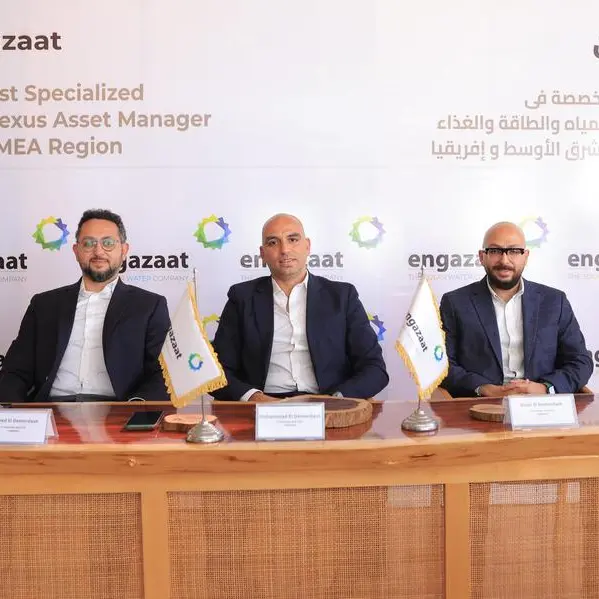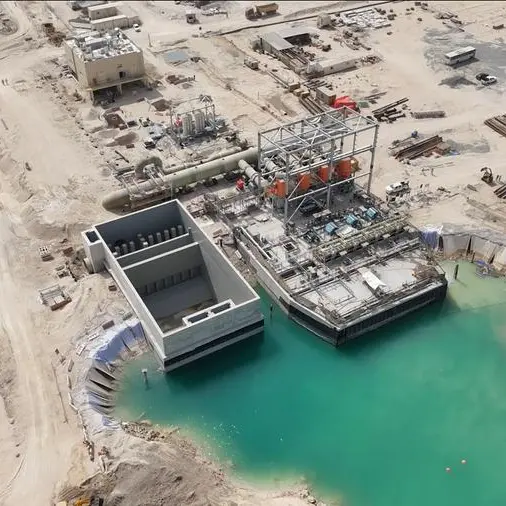PHOTO
While most of the world grappled with the repercussions of the COVID-19 outbreak in 2020, Egypt was one of the few emerging market countries that experienced a positive growth rate thanks to the government’s timely response, according to the International Monetary Fund, which has also forecasted growth to rebound strongly to 5.2 percent in fiscal 2021-22.
In its July 2021 report on Egypt’s real estate market for Cityscape event, global real estate consultancy Colliers highlighted that real estate remained a relatively sound and a stable investment even in a volatile climate. With an increase in population of about 2.5 million people per year, it is unlikely the appetite for real estate across the nation will diminish any time soon - pandemic, or otherwise, the report said.
The real estate leaders that Zawya Projects spoke to agreed that the sector has managed to ovecome the COVID-19 shock and is poised to perform better in 2022.
Ahmed Shalaby, President and CEO of Tatweer Misr said close cooperation between the Egyptian government and the private sector to develop 61 cities across the country, comprising existing and 34 new fourth-generation cities will serve as a locomotive of development for the sector in 2022.
He said: “The real estate sector has continued to improve despite the pandemic and the economic and political turbulences and will do better in 2022.”
Shalaby pointed out that the real estate sector received $500 million of foreign investments in December 2021, a huge of ‘vote of confidence’ on its future prospects. Last month, Abu Dhabi’s Aldar completed the acquisition of a majority stake in local listed developer SODIC for $400 million while Chimera, a private investment company based in Abu Dhabi, put $100 million into Ora Developers, owned by Naguib Sawiris, via a minority stale acquisition in Gemini Global Development Egypt.
“The sector registered 150 billion Egyptian pounds or nearly $10 billion of sales in 2021, which has attracted international developers like Aldar to Egypt,” he said.
Formal organisation
Tarek Shoukry, Head of the Real Estate Development Chamber of the Federation of Egyptian Industries said regulatory measures introduced by the government, including the real estate developers’ law, represent important steps towards organising the sector while safeguarding the rights of various stakeholders.
“The real estate sector has accounted for nearly 20-25 percent of Egypt’s national income for the past seven years,” he said.
Asaad Salama, Chairman of SSE Consultant said on the design front, traditional compounds are making way for towers as the Egyptian government is emphasising smart and integrated buildings in the upcoming new cities.
He said mixed-use towers are able meet customer expectations when it comes to quality and convenience, citing as example, the large number of mixed-use towers being developed in NAC to meet current and future demands.
Sector stability
Meanwhile, Ashraf Ezz El-Din, General Manager of Al-Futtaim Group Egypt said the real estate sector in Egypt needs a stable and predictable regulatory environment if it is to achieve its full potential.
“We are planning to pump new investments into the sector but do not want to be surprised by any future decisions that affect those plans,” he said during an event organised by American Chamber of Commerce in Egypt (AmCham) last month.
“Although there is an urgent need to reconsider some of the legislation to motivate more developers to enter the market, the real estate sector remains one of the promising sectors for this decade,” said Hazem Helal, Commercial Director of Dar Al Mimar Group (DMG). Speaking at the same AmCham event, he said the real estate sector grew by eight percent despite the pandemic’s wide-ranging impact on the economy.
(Reporting by Marwa Abo Almajd; Editing by Anoop Menon)
(anoop.menon@refinitiv.com)
Disclaimer: This article is provided for informational purposes only. The content does not provide tax, legal or investment advice or opinion regarding the suitability, value or profitability of any particular security, portfolio or investment strategy. Read our full disclaimer policy here.
© ZAWYA 2022





















